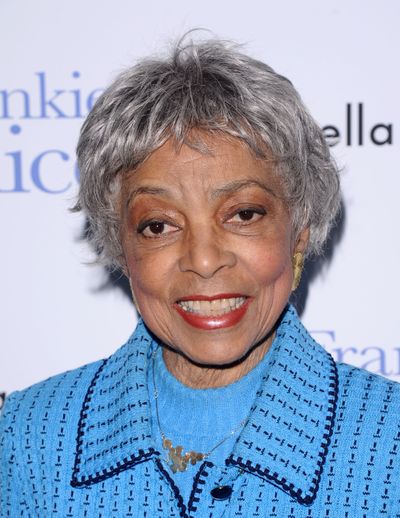Civil rights activist, stage, film, TV actress Dee dies

NEW YORK – For Ruby Dee, acting and activism were not contradictory things. They were inseparable and they were intertwined.
The African-American actress who earned lead roles in movies and on Broadway also spent her entire life fighting against injustice, even emceeing the 1963 March on Washington and protesting apartheid in South Africa.
“We are image makers. Why can’t we image makers become peacemakers, too?” she asked after she and her husband, Ossie Davis, accepted the Screen Actors Guild Award for Lifetime Achievement in 2000.
That legacy of entertaining and pushing for change – in addition to her epic love affair with Davis – made Dee, who died at age 91 in her New Rochelle, New York, home on Wednesday night, a beloved figure in America and beyond. Broadway theaters will dim their lights in her honor tonight.
As a sign of how influential Dee has been to generations of performers, she was thanked twice from the podium at this Sunday’s Tony Awards – by six-time winner Audra McDonald and new Tony winner director Kenny Leon.
Dee’s long career earned her an Emmy, a Grammy, two Screen Actors Guild awards, the NAACP Image Award, Kennedy Center Honors, the National Medal of Art, and the National Civil Rights Museum’s Lifetime Achievement Award. She got an Oscar nomination at age 83 for best supporting actress for her role in the 2007 film “American Gangster.”
She and Davis were more than a performing couple. They were also activists who fought for civil rights, particularly for blacks. “We used the arts as part of our struggle,” she said in 2006.
Along with film, stage and television, their richly honored careers extended to a radio show, “The Ossie Davis and Ruby Dee Story Hour,” that featured a mix of black themes. Davis directed one of their joint film appearances, “Countdown at Kusini” (1976).
Dee and Davis, who died in 2005, were celebrated as national treasures when they received the National Medal of Arts in 1995 and got a Lifetime Achievement Award from the Screen Actors Guild in 2000. In 2004, she and Davis received Kennedy Center Honors. Another honor came in 2007 when the recording of their memoir won a Grammy for best spoken word album.
In 1965, she became the first black woman to play lead roles at the American Shakespeare Festival. She won an Obie Award for the title role in Athol Fugard’s “Boesman and Lena” and a Drama Desk Award for her role in “Wedding Band.”
On television, Dee was a leading cast member on the soap operas “Guiding Light” and “Peyton Place,” a rare sight for a black actress in the 1950s and 60s. As she aged, her career did not ebb. Dee was the voice of wisdom and reason as Mother Sister in Lee’s 1989 film, “Do the Right Thing,” alongside her husband. She won an Emmy as supporting actress in a miniseries or special for 1990’s “Decoration Day.”
Most recently, Dee performed her one-woman stage show, “My One Good Nerve: A Visit With Ruby Dee,” in theaters across the country. The show was a compilation of some of the short stories, humor and poetry in her book of the same title.
She is survived by three children: Nora, Hasna and Guy, and seven grandchildren. Her family and friends surrounded her when she died, Nora Davis Day said.